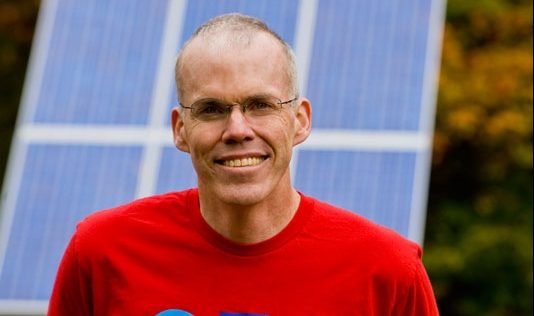African countries could be great leaders in the use of renewable energy sources globally if they committed to using their resources.
Countries that progressed fast in the use of renewable energy would lead in the future and Africa was blessed with vast amounts of sunlight and wind to lead in that regard. Germany and other Scandinavian countries were investing heavily in renewable energy, with Germany having 85% of its energy mix in renewable energy.
Climate change, which was caused by the use of fossil fuels, was the greatest crisis the world had ever faced and could also be the greatest opportunity for socio-economic development in Africa if its leaders increased efforts at prioritising renewable energy.
Africa had to choose the use of Solar Energy over other forms such as Nuclear, coal or other fossil fuels.
Nuclear energy was very expensive and took decades to build. However, “Africa can make good use of the sunshine”.
Although investing in Solar Energy panels could be expensive in the beginning, it was worth it in the long run since the energy from the sun would be for free, saying “that is the cheapest deal”. The cost of installing solar systems had reduced greatly in the last ten years, making solar energy the cheapest alternative for energy generation, both for individual households and for feeding into national grids, especially for countries like Ghana, which had an abundance of sunshine.
Nuclear and other non-renewable sources of energy, caused climate changes which affected Agriculture and Aquatic life among others. Nonetheless, Africa has done the least in causing climate change but is the most prone to its effects despite the current drought in Somalia as an example.
Climate change used to be a problem for the future but has become a problem for now and Africa needed to step up to make a difference. Additionally, the government of Ghana’s commitment is to increasing the use of solar energy and its intention to the review the renewable energy law and that Ghana could do better than the 10% renewable energy aimed at by 2020.
A collaboration has nevertheless, been put on board between the government of Ghana, private sector and Civil Society Organisations to achieve a higher renewable energy component in Ghana’s energy mix.
350 Ghana Reducing our Carbon(G-Roc) is an informal network of young people in Ghana formed with the aim of partnering with key stakeholders to champion the need for carbon emission reduction while actively promoting renewable energy systems as a key effort in combatting climate change.

Leave a Reply